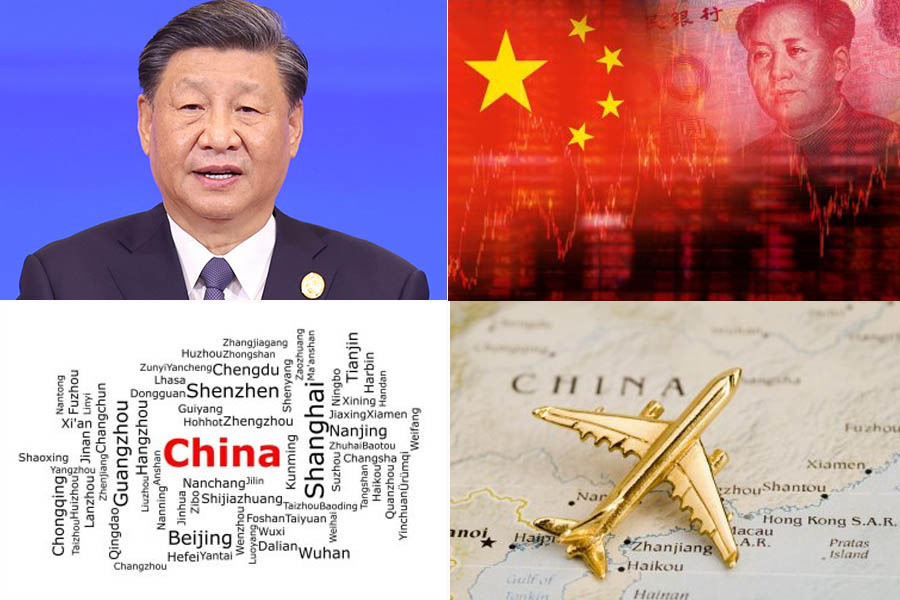
In the intricate tapestry of Chinese politics, campaigns against corruption have been a longstanding tool for leaders to consolidate power. However, under the leadership of Xi Jinping, a new and unending variation of this campaign has emerged, sending shockwaves through the Communist Party for over a decade.
Xi Jinping's strategy, reminiscent of Mao Zedong's "continuous revolution," revolves around a perpetual purge, creating an atmosphere of perpetual fear within the party ranks. Since his ascent to power in 2012, approximately five million individuals have faced punishment for offenses ranging from abuse of power to creating excessive red tape.
The year 2023 witnessed an intensified wave of this unrelenting campaign, infiltrating sectors such as finance, food, healthcare, semiconductors, and sports. Senior officials, bankers, hospital directors, and even soccer administrators found themselves targeted. The abrupt removal of China's foreign and defense ministers, coupled with the ousting of military and defense-industry officials, fueled speculation about a broader shake-up within the country's military establishment.
Critics argue that Xi's refusal to embrace structural changes and transparency is prolonging the campaign's duration. Instead, he attributes corruption to individual moral failings, doubling down on centralized and opaque governance. According to Xi, a continual cleansing is imperative to maintain the party's potency and purity.
"Battling corruption is the most thorough form of self-revolution," Xi asserted before commencing his third term as party chief in October 2022. This narrative allows Xi to perpetually use disciplinary purges as a means to enforce loyalty through fear, solidifying his vision.
The perpetual purge strengthens Xi's authority, it instills constant apprehension among party members, hindering decisive actions. China faces economic challenges, including a post-Covid recovery struggle, surging youth unemployment, a downturn in the property market, and declining consumer sentiment. The accrual of debt and waning foreign investor interest further compounds the nation's uncertainties.
In the early years, officials viewed the campaign as a more ambitious version of previous efforts. In 2013, about 180,000 people faced discipline, a number that soared to 621,000 in 2018 when Xi declared a "crushing victory" over corruption. Since 2017, at least half a million individuals have been disciplined annually, demonstrating the perpetuity of the campaign.
Transparency International's 2022 index on corruption perception showed improvement, ranking China 65th globally. However, critics argue that corruption may have been pushed deeper into the shadows rather than eradicated.
A recent case involving Zhang Jing, a former local official, exemplifies the persistence of corruption. Despite Xi's efforts, newer and hidden forms of corruption continue to emerge, necessitating a shift towards tackling these issues at their root.
Xi's perpetual purges draw inspiration from Mao's continuous revolution, aiming to avert ideological atrophy within the party. However, unlike Mao's external approach, Xi has internalized the shake-up, using fear to enforce virtuous behavior.
The perpetual campaign has indeed consolidated power for Xi, but insiders argue that his rule-by-fear approach stifles policy debate and fuels indecision among lower-level officials. As China grapples with long-term challenges, Xi's unyielding stance against corruption adds a layer of complexity to an already challenging economic scenario.
In the face of a persistent economic slowdown, Xi signals no retreat, emphasizing that the struggle against corruption will be ongoing but never completed, leaving China in a state of perpetual uncertainty.